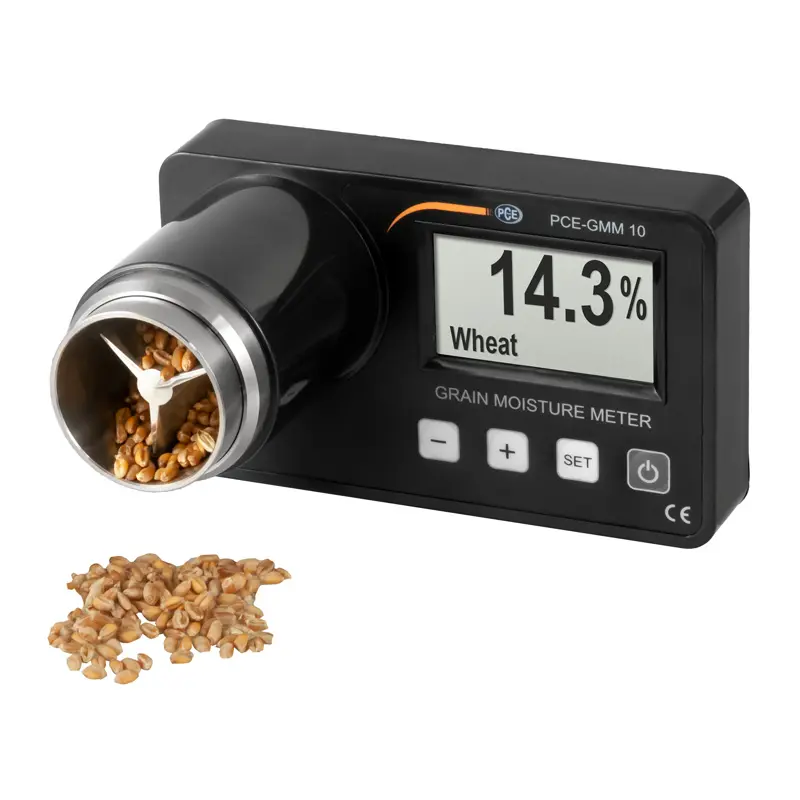The Ultimate Overview to Dampness Meters: A Comprehensive Introduction and Just How They Can Conserve You Money
In the world of structure maintenance, building, and various sectors, the importance of properly gauging moisture degrees can not be overstated. Dampness meters act as essential devices in discovering and monitoring moisture web content in materials, assisting in stopping costly problems and ensuring the top quality of products. Comprehending the subtleties of various sorts of wetness meters, their applications, and the possible cost-saving benefits they supply can be a game-changer for experts and organizations alike. Finding just how these devices can not only simplify processes however also add to economic savings is a trip worth embarking on.
Types of Wetness Meters
One typical type is the pin-type wetness meter, which measures the electrical resistance in between 2 pins placed into a material. Pinless dampness meters, on the various other hand, usage electro-magnetic sensor plates to scan a bigger location without triggering damage to the material's surface area.

Infrared dampness meters measure the thermal properties of a material to establish its moisture material non-invasively, making them useful for applications where pin or pinless meters may not be ideal. Understanding the different kinds of moisture meters available can assist sectors select the most proper device for their particular wetness measurement requirements.

Advantages of Utilizing Dampness Meters
Moisture meters use important benefits in accurately examining and monitoring moisture degrees in varied materials and atmospheres (Moisture Meter). One of the primary advantages of using wetness meters is the avoidance of possible damage caused by excess wetness. By spotting and resolving high dampness degrees early on, moisture meters help to stop mold and mildew development, rot, and architectural damages in buildings, saving both time and cash on repair services. In addition, dampness meters help in making certain the top quality of products throughout building or production processes. By precisely measuring moisture content, these tools aid keep the honesty of timber, drywall, concrete, and other materials, decreasing the danger of failures or issues.
Furthermore, utilizing dampness meters can lead to enhanced power efficiency. In farming setups, moisture meters play a critical duty in enhancing plant returns by enabling farmers to keep an eye on dirt moisture levels and make notified watering decisions.
Exactly How to Pick the Right Dampness Meter
Selecting the proper dampness meter involves thinking about crucial elements such as material compatibility, measurement variety, and calibration precision. When picking a moisture meter, it's vital to make certain that the meter appropriates for the specific material you will be testing. Different products have differing electric homes that can impact wetness analyses, so picking a meter made for your material is critical for exact outcomes. In addition, take into consideration the dimension range of the moisture meter. Ensure that the meter can spot wetness levels within the variety required for your applications. Calibration accuracy is another crucial factor to bear in mind. Go with a moisture meter with reputable calibration to guarantee accurate and consistent analyses. Some meters may require periodic calibration changes, so recognizing the calibration procedure is necessary. By thoroughly assessing these elements, you can choose a dampness meter that fulfills your requirements and offers accurate dampness measurements for your projects.
Correct Strategies for Moisture Meter Use

Cost Savings With Wetness Meter Applications
Exactly how can the tactical application of wetness meters lead to significant expense savings throughout various sectors? In the agriculture sector, moisture meters help in identifying the optimum time for harvesting plants, protecting against over-drying or excess wetness that can influence the final item's quality.
Likewise, in construction, wetness meters aid avoid pricey damages by finding moisture levels in structure products, such as wood or concrete, which can cause architectural problems otherwise addressed immediately. By recognizing problem areas beforehand, specialists can take rehabilitative steps to prevent considerable repairs or substitutes, inevitably saving time and money.
Moreover, in the food handling sector, moisture meters are vital for checking item quality and guaranteeing conformity her latest blog with security laws. By accurately measuring wetness material in food, suppliers can protect against spoilage, maintain freshness, and decrease waste, leading to considerable expense financial savings. Generally, the strategic application of moisture meters is an important investment that can cause significant straight from the source cost reductions and enhanced performance throughout numerous industries.
Conclusion
To conclude, moisture meters are valuable tools for determining and finding dampness degrees in different products. By using the ideal wetness meter and complying with correct strategies, users can efficiently prevent costly problems brought on by excess wetness. Buying a quality dampness meter can cause substantial expense savings in the future by recognizing prospective issues early on and making it possible for timely remediation. Inevitably, wetness meters are important instruments for preserving the integrity and long life of materials and frameworks.
Dampness meters serve as indispensable devices in spotting and monitoring moisture web content in products, helping in preventing pricey damages and ensuring the top quality of products. Infrared moisture meters measure the thermal residential properties of a product to determine its wetness material non-invasively, making them helpful for applications where pin or pinless meters might not be appropriate.Moisture meters use vital advantages in accurately checking and examining moisture degrees in varied materials and environments. In agricultural setups, dampness meters play a critical role in optimizing crop returns by making it possible for farmers to monitor soil wetness levels and make notified watering choices.In conclusion, moisture meters are useful devices for measuring and discovering wetness levels in different products.
Comments on “The Ultimate Overview to Choosing the Right Moisture Meter for Your Needs”